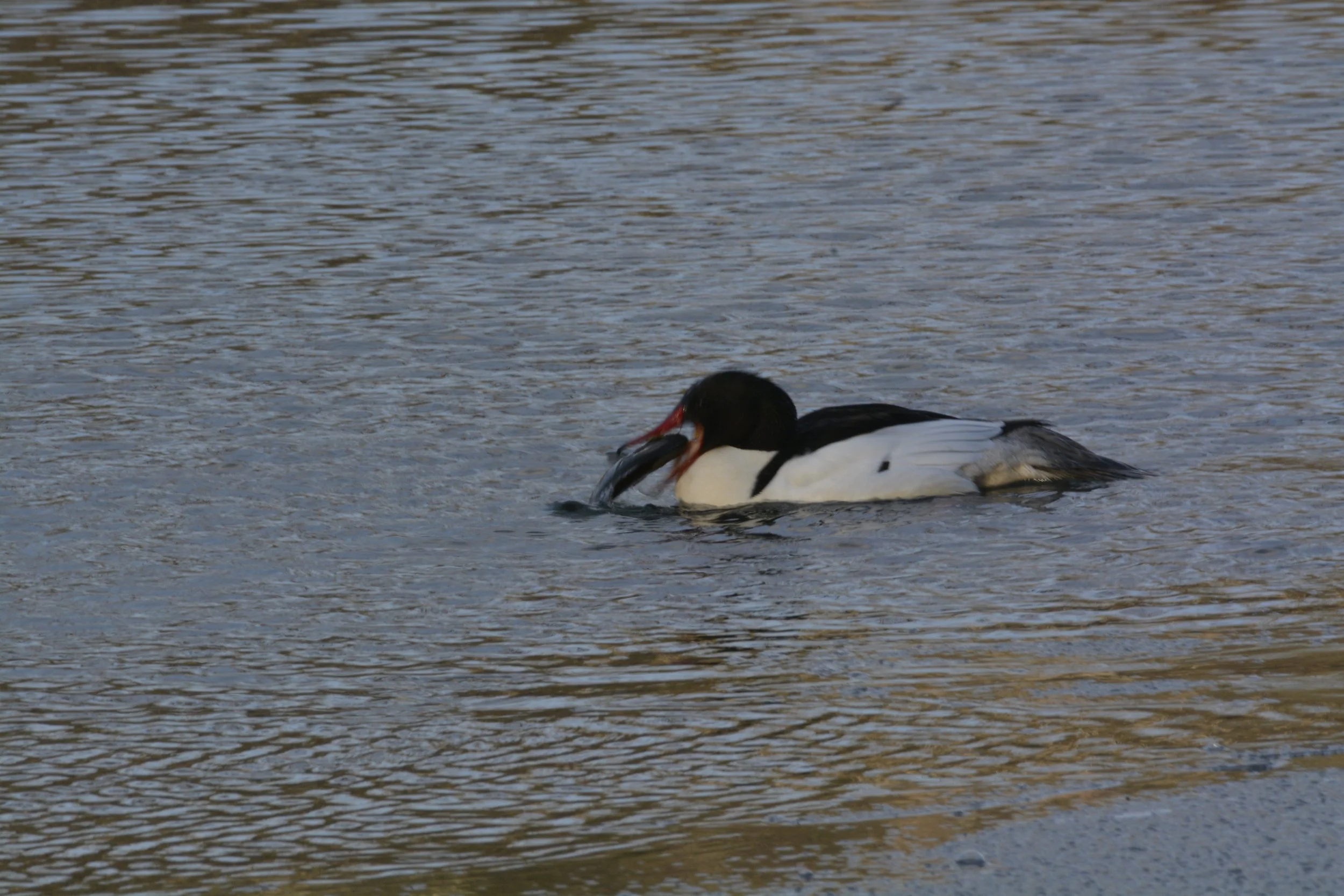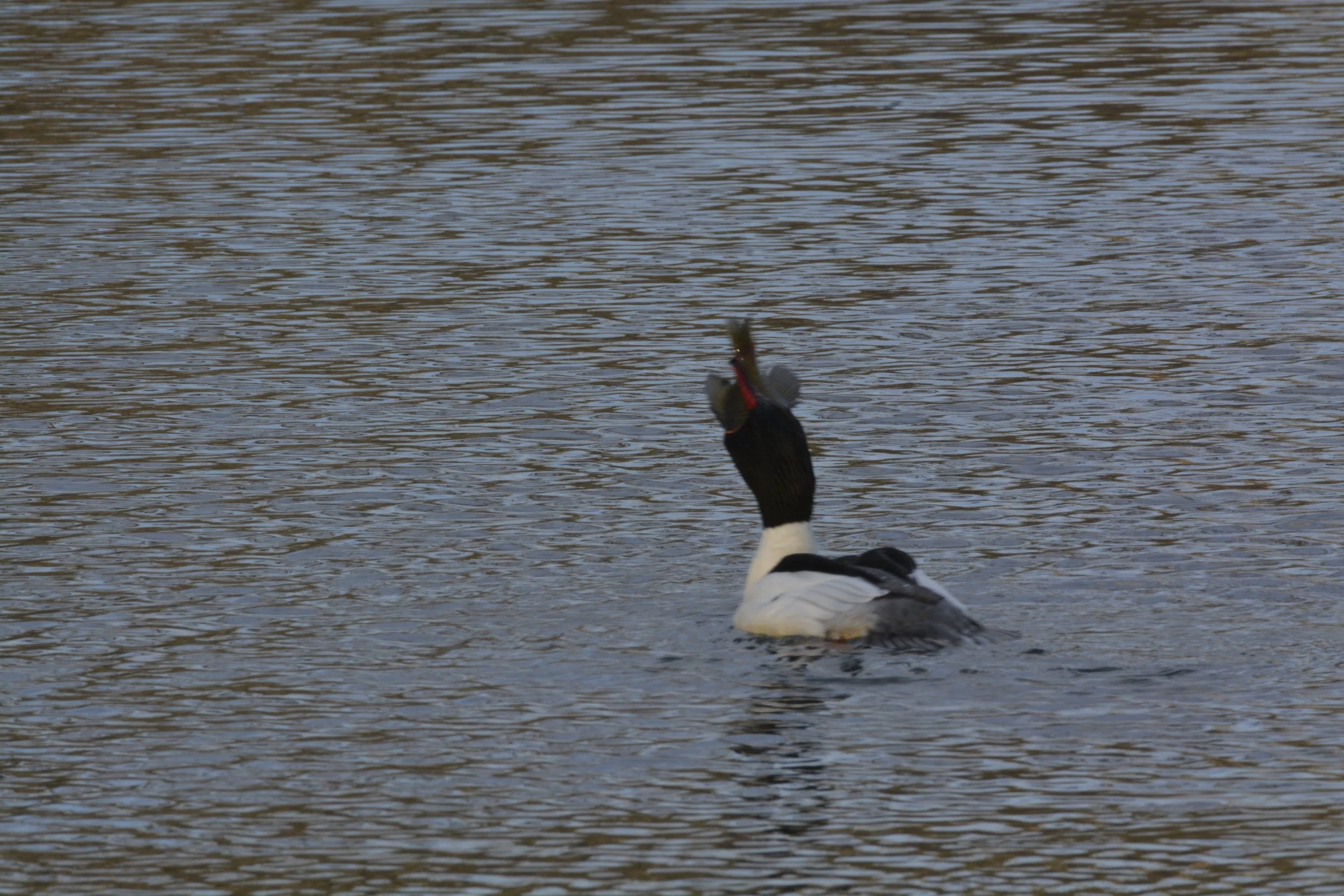What Happens When a Bird Swallows a Fish?
Back in early February, I watched as a common merganser caught and ate a sunfish in Channels Marsh (it always pays to stop and watch a bit before heading home at the end of the day). And as I watched it battle this fish, and eventually choke it down, I wondered just what happens as the fish makes its final journey...it must not be a pleasant trip.
This morning I was chatting with one of the DEC fellows and as I told him about this episode, he also wondered what happens to the fish.
So, of course, I had to look it up.
Let me tell you: I do not want to come back as a fish.
Picture it:
There you are, a fish, swimming about in the pond, minding your own fishy business, when suddenly you are grabbed from above by a pair of powerful grabbers - a heron, or merganser, or egret, or bittern (it doesn't really matter what) has caught you. You thrash around a bit, fighting for your life, but the bird's beak is designed to hang on...you don't have much of a chance.
The bird manages to turn you around so that you go down its gullet head first. This protects the bird's esophagus from the spines in your fins, and the rough edges of your scales, if you went down backwards.
Once you are in the bird's throat, the muscles in the esophagus start to squeeze, pushing you further and further into the bird. If you are lucky, these muscles crush you and that is the last thing you remember.
However, if you are still alive, you will notice that the inside of the bird is rather warm. You need water to carry oxygen that your gills can extract in order for you to breathe. Even if the bird swallowed a whole lot of water while grabbing and swallowing you, that water is now warming up. Instead of the oxygen-rich cool waters of the pond (which, in February, when I took these photos, was probably in the mid-30s), you are now in a chamber that is nearly 100 degrees Fahrenheit - there won't be much oxygen in the water at that temperature. You are now going to suffocate. If you are lucky.
But it's just not your day, and you find you are still alive, and not doing well.
These birds have a two-chambered stomach. In the first chamber, acids are secreted that are designed to dissolve whatever enters. These acids are comparable to a 0.5-1% hydrocholoric acid - rough stuff. Once you hit this, your mucus membrane will only protect you for just so long.
In addition to these acids, there is a digestive enzyme called pepsin, whose sole purpose is to break down proteins into their individual amino acids. In other words, this enzyme is a solvent, and it turns your flesh it a soupy, goopy, mess. Because your skin and gills are almost pure protein, they start melting away pretty fast. And if you are still alive, and gasping for air, you are pulling the acids and the enzyme into your system, allowing them to dissolve you even faster. Withing mere minutes, you are liquifying. If you are lucky, you will have suffocated before this happens.
After the first stomach chamber has done its job - converting you into soup - you pass into the second chamber, which is the gizzard. The purpose of the gizzard is to grind up everything that enters it.
From here you pass into the small intestine. Your journey from the time you were swallowed until now has taken less than an hour. Your component parts are now absorbed, providing the nutrients the bird needs for its own survival. Any left over bits continue thru the bird and are deposited the next time the bird poops.
Well, I don't know about you, but I am sure glad I'm not a fish.


